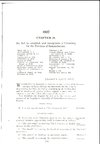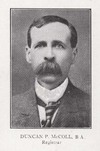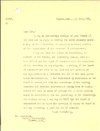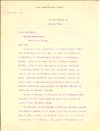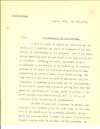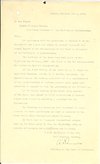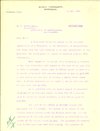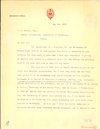“I should recommend you begin by saying that you will pay not less than $5,000” : The Search for a President - Advice
Events leading to the creation of what is now the University of Saskatchewan moved rapidly. Saskatchewan was established as a province on 1 September 1905; on 3 April 1907, the province had passed a University Act. That Act established a single university for the province, supported by but independent from government.
It also called for two administrative positions: that of Registrar, and President. The first staff member of the University, Duncan P. McColl, previously deputy minister of Education, was appointed Registrar and immediately began the work of establishing convocation. Through that body, the Senate would effectively be chosen and through the Senate, the Board of Governors.
All of this, remarkably, was completed by 8 January 1908. Before the Board as a whole had met, an executive committee of the Board authorized McColl to begin soliciting recommendations for a President. As the Chancellor Edward Wetmore had publicly declared, they were looking “for a great president, not an ordinary one.” They began their search by asking for recommendations, as well as surveying salaries; and their reach was extensive: major, and highly respected, institutions throughout the U.S., England, Scotland, and Canada.
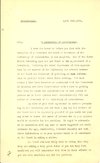
Letter for recommendations listing Canadian and British universities
These went to: McGill, Laval, Toronto, Dalhousie, King’s College, Acadia, UNB, Mount Allison, Manitoba, Aberdeen, Glasgow, Edinburgh, Liverpool, London, and St. Andrew’s
W. Peterson, principal of McGill, wrote: “There would be little use, in my
judgment, in openly announcing that you are prepared to pay, say, $10,000 a year unless you are sure of getting a really first class man. I should recommend you begin by saying that you will pay not less than $5,000. As to salaries here, the normal salary of President is $7,500, but I have good reason to know that if a vacancy were to occur, the income attaching to the office would be $10,000. … The salaries of Professors are, as a rule, too low. … All these salaries will be increased at the earliest possible moment.”
Robert Falconer, then president of the University of Toronto, offered high praise for Walter Murray. After noting Murray’s scholastic achievements and career to date – including having been offered the presidency of the University of New Brunswick and having been awarded an honorary degree from Queen’s – Falconer summed up Murray’s personal qualities:
As a citizen in Halifax Professor Murray has taken more than his share of work, having served for the last three years as an alderman, and he has thrown himself with unselfish effort into a multitude of public duties. … His splendid common-sense, tack and clear sightedness make his judgment of uncommon value. He is not perhaps an eloquent speaker, but he is effective and has a fine conception of educational ideals, and is a leader among men.
Related Items
- Board of Governors Minutes, 22 May 1908
- Board of Governors Minutes, 23 June 1908
- Board of Governors Minutes, 20 August 1908
- Board of Governors Minutes, 21 August 1908
- Board of Governors Minutes, 25 September 1908
- President’s Annual Report, 1908-1909 [PDF]
